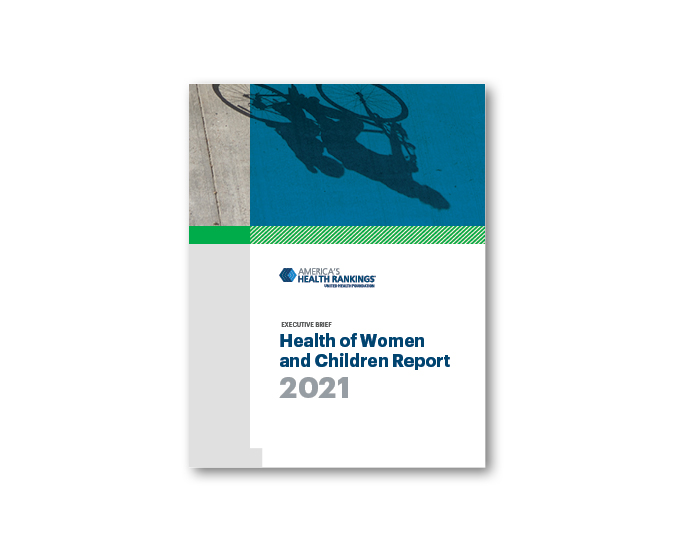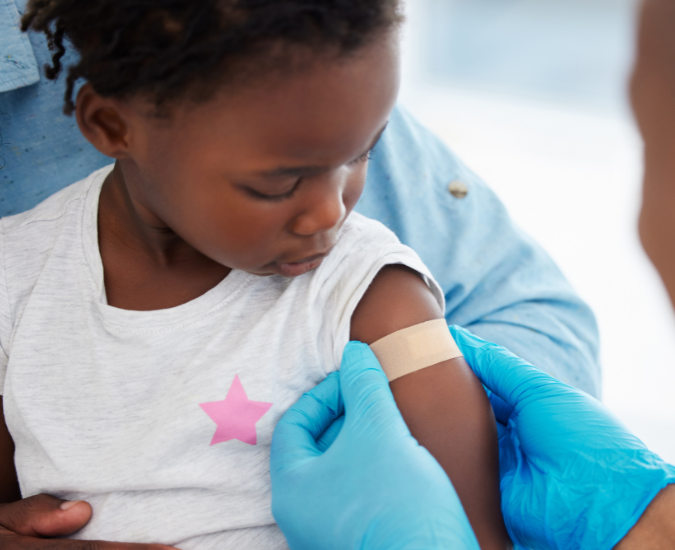The health of women and children impacts the overall health and economic strength of communities across the United States. While measurable progress has been made in recent years to monitor and improve health for women and children, the United Health Foundation’s “America’s Health Rankings 2021 Health of Women and Children Report” highlights improvements, challenges and disparities in health and well-being across all 50 states.
Most notably, behavioral health measures for children highlighted significant challenges before and during the COVID-19 pandemic:

The report also found increased frequent mental distress in women, increasing levels of obesity among women and lack of physical activity among children. Maternal mortality and maternal morbidity are rising, especially in certain states and among Black mothers.
The report finds progress in some areas including lower rates of teen births, and the prevalence of cigarette smoking among women. Progress remains stagnant in others, such as the number of low birth weight infants.
UnitedHealth Group and the United Health Foundation are working to address health disparities and advance health equity, as described in the 2020 Sustainability Report. But much work remains to achieve more equitable health outcomes. The United Health Foundation encourages the use of America’s Health Rankings reports as a resource for building healthier communities.

America’s Health Rankings 2021 Health of Women and Children Report
The “Health of Women and Children Report” provides a comprehensive look at the health of over 58 million women of reproductive age and over 73 million children, examining overall health across the nation leading up to and during the early part of the COVID-19 pandemic. This year’s report also offers deeper insights into maternal health risks and other urgent public health issues.
Key Findings
While the nation has achieved sustained success over the years in some areas, several areas of concern remain. The public is encouraged to browse the full report. In addition to behavioral health challenges, additional key challenges include:
Physical Activity
Educational Attainment
How We’re Making an Impact
We encourage public health leaders, lawmakers and nonprofits to use America’s Health Rankings as a resource for building healthier communities. UnitedHealth Group, including the United Health Foundation, UnitedHealthcare and Optum, partners with national and local nonprofit organizations to support emerging strategies to address public health challenges identified by “America’s Health Rankings,” and advance health equity. Following are examples of our recent work (past five years) to address key challenges revealed in this report.
“It is alarming that we are seeing a 21% increase in childhood anxiety, but it is not surprising since that data reflects the early pandemic reality. But just because this is more common does not mean that it is normal or should be dismissed. Please be on the lookout and seek professional support for your children or family members if they continue to struggle with anxiety, mental or physical health concerns.”
Dr. Rhonda Randall EVP & Chief Medical Officer, UnitedHealthcare Employer and Individual
Behind the Report
Data in this year’s report is based on the most recent publicly available data. The majority was collected prior to the pandemic, while data from the 2020 National Survey of Children’s Health captures insights from the early stages of the pandemic. With many measures, the report drills down to expose differences by geography, education level, income level and race/ethnicity. This examination often reveals differences among groups that national or state aggregate data mask.
UnitedHealth Group and America’s Health Rankings
For more than 30 years, UnitedHealth Group has used findings from America’s Health Rankings reports, along with additional data and insights from the organization’s 330,000 team members, to devise and deliver targeted, meaningful solutions that address America’s health disparities — in health care, insurance, clinical expertise and financial support. UnitedHealth Group partners with national and local organizations, government agencies, experts and lawmakers to further improve and better target these solutions, and help all people live healthier lives.
RELATED
Advancing Health Equity
Explore UnitedHealth Group’s annual Sustainability Report to learn more about our efforts to address health disparities and advance health equity.


Share This Story